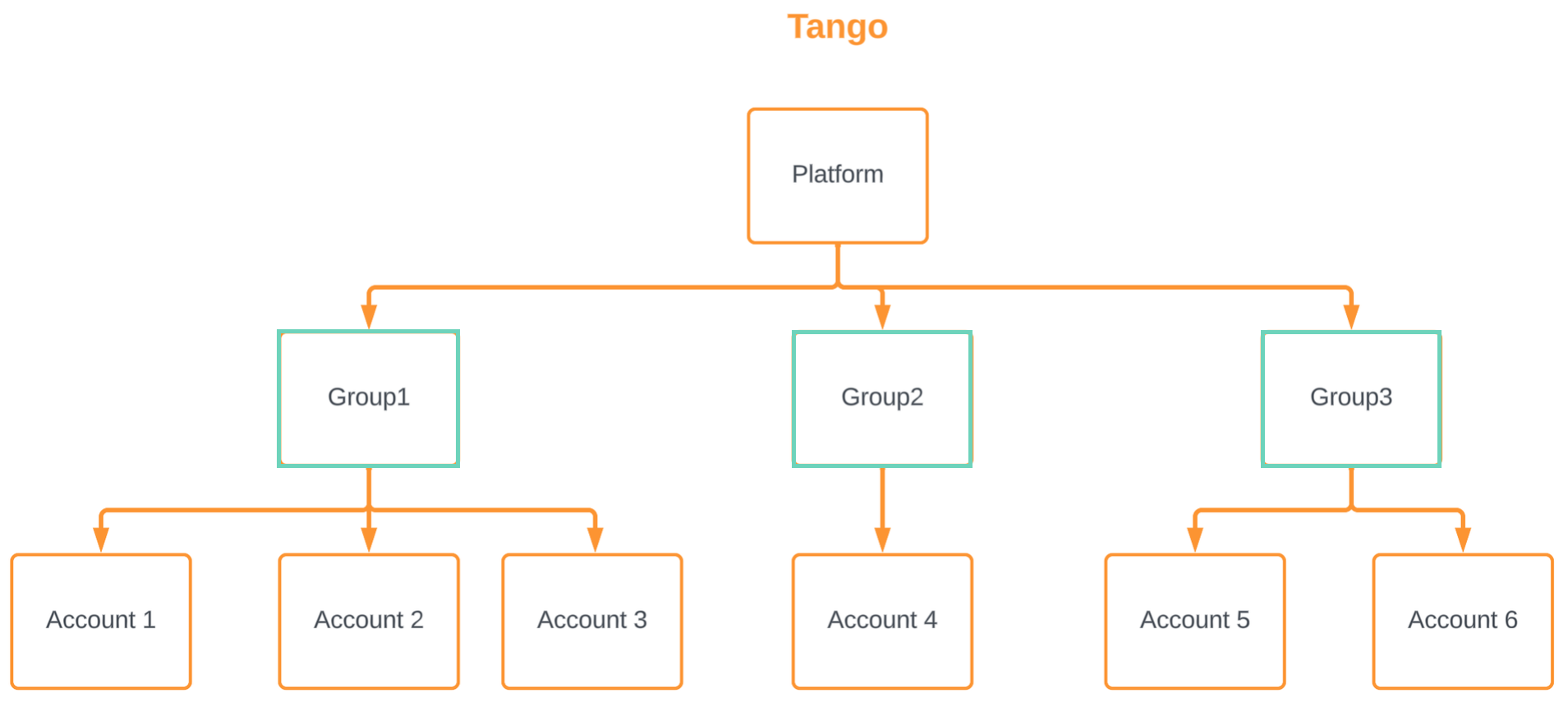Manage customers (groups)
Tango is organized in three tiers: Platform, Customers (Groups), and Accounts. Tango API allows you to manage groups on your platform. A group is a collection of accounts to hold funds and place orders. Group is the second level under your company's platform. Each platform contains one or more groups. Only one group in your platform may have the same name as the platform. Groups cannot be deleted or disabled once created.

Coming soonCustomers are also known as groups in Tango. We are planning to update our API endpoints in our V3.0 release to replace Customers with Groups.
Use cases
The following use cases show examples for enterprises and small companies:
- Enterprises: In ABC enterprise, all departments or divisions have their own groups. The manager of each department or division has control over all accounts in their department. They can create multiple accounts for teams, projects, budgets, or anything that needs funds tracked separately. They can also create groups for accounts that require a controlled access; for example, team A has a separate group than team B since the two teams do not need access to each other's account.
- Small Companies: In an small company, groups are set up by:
- Accounts—such as Internal programs, sales initiatives, and employee moral.
- Customer programs—such as loyalty accounts, or referral accounts.
- Platform customer with sub customers—in platform customers, each customer has their own group; sub customers can have multiple projects or budgets with the platform customer depending on their budget needs.
Updated 3 months ago
